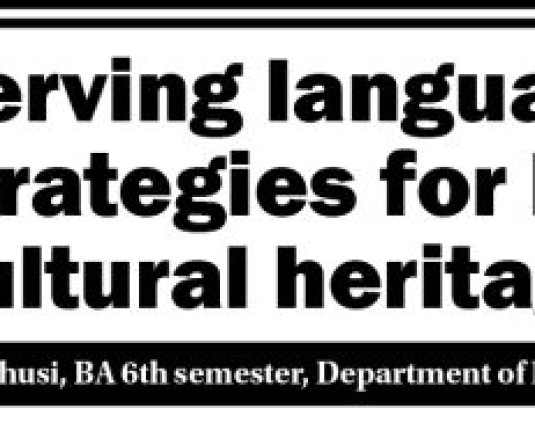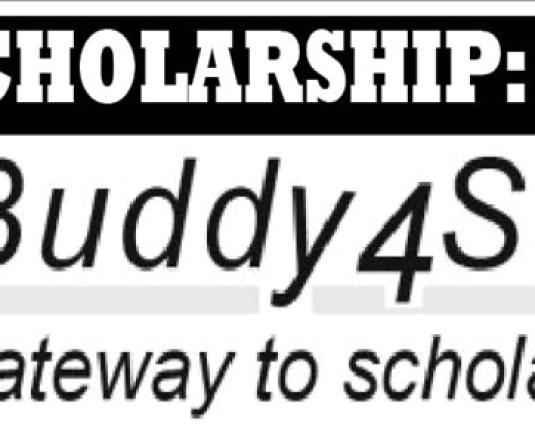
Arenkala Kichu
Assistant Professor, Department of English
A majority of us think that “ENGLISH” is a study of only literature since literature has only been the area that has been focused on. Whereas, linguistics and ELE (English Language Education) have never been focused or even given importance. Linguistics, which is a scientific study of language focuses on; Phonetics, phonology, semantics, morphology, generative grammar, syntax, socio-linguistics, computational linguistics and many more. English Language Education seeks to develop learners’ proficiency level in English for study, work and leisure/real life communication by providing enough activities and opportunities enabling them to use the language fluently and accurately.
One of the main aims of studying literature is to learn the English language as well as to know the English culture and tradition. But the question is, is the language really learnt? Is the content of the syllabus really in line with the objective of a course/subject? Tracing back to the history of using English in Nagaland, it has been almost 150 years but many Naga research scholars have commented in their findings that the learners’ proficiency level of the English language is still much to be desired. Of course there are some exceptional cases taking into consideration the family background but the rest should take a large amount of time and effort to improve.
Now, the query lies in how the curriculum has been carried out over the years. When we talk about curriculum, a syllabus is one of the main weapons to acquire the targeted objectives of a course. However, in order to carry out the contents of a course/subject, teachers play a vital role because they translate the contents to the learners by using appropriate materials to fulfill the objectives. So, are teachers really equipped with the required skills? Are they from the right background? An example to make the scenario clearer, to teach linguistics, are the teachers from the linguistic background? The same may follow with language skills/Functional English/communicative English/English for Specific Purposes where teachers from the English Language Education (ELE)/English Language Teaching background are the most appropriate teachers to fulfill its every objective.
As a person from linguistics and ELE background, I was always rejected when sought for a platform where I can frame a curriculum which focuses more on ‘English language learning’ by providing appropriate opportunities and activities to the learners rather than a structural-theoretical oriented syllabus. While I am still seeking for the Platform, it is the need of the hour to introduce subjects like communicative English and Functional English for across departments which would serve as a firm foundation of the integrated skills (listening, speaking, reading and writing) to the learners and I believe that this would enable the Naga learners to listen, speak, read and write a little better and raise our proficiency level.
Given some thought and effort, the prevalence of this inadequacy could be due to the lack of a well-planned curriculum where appropriate instruction should be laid out for the teachers to follow certain approaches and methods, strategies, materials and assessment procedures in relation to the subject/course. It is also observed that the syllabi in Nagaland do not have any information about teaching-learning, materials, methods, strategies and assessment procedures. We can clearly conclude that we do not have a strong curriculum which prevents teachers to provide a proactive contribution to raise the bar of performance and productivity in a creative way.
It must also be understood that the negative educational outcomes cannot be attributed to failure in just one aspect. The relationship between a teacher and a student is largely responsible in the management of the learning environment. It is also important to change the mode of classroom interaction since it is noticed that less opportunity is given to the students and the approach is still very traditional (Lecture Method). Hence, effective measures should be taken to renew and redefine the curriculum.
When it comes to learning a second language/ third language/Foreign Language/, it is first the mastery of the sound system, and secondly, it is the mastery of the features of arrangement that constitute the structure of a language. Therefore, foundational courses should be introduced to get more familiar with the sounds so as to improve the learners’ pronunciation and reduce the level of mother tongue influence over the language. In Nagaland, English is taught as a subject and not as a language. Students’ exposure to the language is very limited as they speak their mother tongue or Nagamese at home as well as often inside the classroom. Students get very less reinforcement outside the college/school and were found taking private English tuitions. This inadequacy is unexpected at the undergraduate level since a majority of the students start learning English from a very young age.
Of course language teaching and learning have succeeded but only to a certain extent and half-baked knowledge of the English language could be one of the reasons that hamper higher development of the educated people. In my opinion, for a majority of the Naga learners, right from the day they start schooling, the language at home is different from the language in school. However, we can deduce from this that the areas of language development in the two languages will vary as they are separately used. Thus, what must be remedied here is that we should make conscious effort to activate processes with a well-planned curriculum (with a pot pourri of literature, linguistics and ELE) to shift the current status of ENGLISH CURRICULUM into a CRATED English department.
Degree of Thought is a weekly community column initiated by Tetso College in partnership with The Morung Express. Degree of Thought will delve into the social, cultural, political and educational issues around us. The views expressed here do not reflect the opinion of the institution. Tetso College is a NAAC Accredited UGC recognised Commerce and Arts College. The editors are Dr Hewasa Lorin, Tatongkala Pongen, Seyiesilie Vupru, Vikono Krose and Kvulo Lorin. Portrait photographer: Rhilo Mero. For feedback or comments please email:dot@tetsocollege.org.





